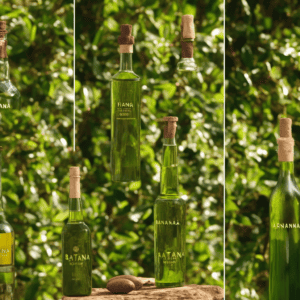You’re about to discover the unique benefits of argan and batana oils, two natural wonders that can transform your skincare and haircare routines. Both oils boast impressive nutritional profiles, with argan oil high in oleic and linoleic acids and batana oil rich in alpha-linolenic acid. But that’s just the beginning. Each oil offers distinct skin and hair benefits, antioxidant properties, and culinary and medicinal uses. As you explore the world of argan and batana oils, you’ll uncover the secrets to radiant skin, luscious locks, and a healthier you – and the best part is yet to come.
Nutritional Content Comparison
When comparing the nutritional content of argan and batana oils, you’ll notice that both boast an impressive array of essential fatty acids, antioxidants, and vitamins, but with some significant differences in their composition.
The fatty acid profile of argan oil is predominantly comprised of oleic and linoleic acids, whereas batana oil has a higher concentration of alpha-linolenic acid. These variations can affect how your body absorbs the oils. For instance, alpha-linolenic acid has been shown to enhance vitamin absorption rates, particularly for fat-soluble vitamins like vitamins A, D, E, and K. This is crucial, as optimal vitamin absorption is essential for maintaining overall health.
Batana oil’s unique fatty acid profile also makes it more susceptible to oxidation, which can impact its shelf life and nutritional integrity. In contrast, argan oil’s fatty acid composition provides a more stable shelf life. Understanding these differences is crucial in determining which oil best suits your nutritional needs.
Skin and Hair Benefits
As you explore the benefits of argan and batana oils, you’ll find that their distinct nutritional profiles also impact their effects on your skin and hair. Both oils are renowned for their ability to nourish and protect your skin, but they differ in their approach. Argan oil, rich in antioxidants and fatty acids, is ideal for moisturizing routines, providing long-lasting hydration and reducing fine lines and wrinkles.
Batana oil, with its high concentration of vitamins and minerals, is perfect for hydrating masks, leaving your skin feeling soft, supple, and refreshed.
When it comes to hair care, argan oil’s antioxidants and fatty acids help to repair and protect your locks, reducing frizz and flyaways. Batana oil, on the other hand, nourishes your scalp, promoting healthy hair growth and reducing dandruff.
Whether you’re looking to rejuvenate your skin or revitalize your hair, both argan and batana oils offer a natural, effective solution. By incorporating these oils into your daily routine, you can unlock a more radiant, healthy-looking you.
Antioxidant Properties Unveiled
Delving into the antioxidant properties of argan and batana oils reveals a complex defense system that shields your skin and hair from environmental stressors and oxidative damage. You’ll discover that both oils are rich in free radical scavengers, which neutralize harmful molecules that can cause inflammation and premature aging. As you incorporate these oils into your skincare routine, you’ll experience a significant reduction in oxidative stress, which can lead to a range of skin issues, from fine lines and wrinkles to dullness and discoloration.
Argan oil, in particular, boasts an impressive level of antioxidants, including vitamin E, ferulic acid, and polyphenols. These potent compounds work together to combat oxidative stress, calming and protecting your skin from the inside out. Batana oil, on the other hand, contains a unique blend of antioxidants, including beta-carotene and lutein, which target specific free radicals and neutralize their harmful effects. By harnessing the antioxidant power of these oils, you can expect to see improved skin elasticity, reduced inflammation, and a more radiant, youthful complexion.
Culinary and Medicinal Uses
Beyond their cosmetic benefits, you’ll discover that argan and batana oils also offer a range of culinary and medicinal uses that can enhance your overall well-being. As you explore their culinary traditions, you’ll find that both oils can elevate the flavor profiles of various dishes. Argan oil, with its mild, nutty flavor, is perfect for salad dressings, grilled meats, and roasted vegetables. Batana oil, on the other hand, boasts a rich, earthy flavor, making it an ideal addition to soups, stews, and braises.
In terms of medicinal uses, both oils have been used for centuries to treat various health issues. Argan oil is rich in antioxidants and essential fatty acids, which can help soothe skin conditions like acne, eczema, and psoriasis. Batana oil, with its high concentration of omega-9 fatty acids, has been shown to reduce inflammation and improve cardiovascular health. By incorporating these oils into your daily routine, you can experience a range of benefits that extend far beyond their cosmetic applications.
Shelf Life and Storage Tips
You’ll want to store your argan and batana oils properly to maintain their quality and shelf life, so it’s essential to understand the best practices for preserving their nutritional potency. Proper storage can extend the shelf life of your oils, ensuring they remain effective for a longer period.
Check the expiry dates on the packaging to ensure you’re using the freshest oil possible. Typically, argan and batana oils can last up to 12 months when stored correctly. Consider the packaging options: dark glass bottles with tight-fitting lids are ideal, as they protect the oil from light and air exposure.
Store your oils in a cool, dry place, away from direct sunlight and heat sources. Avoid storing them near ovens, refrigerators, or freezers, as temperature fluctuations can affect the oil’s quality. By following these simple storage tips, you’ll be able to enjoy the benefits of argan and batana oils for a longer period while maintaining their nutritional value.
Local Sourcing and Sustainability
As you ensure the quality and shelf life of your argan and batana oils, it’s equally important to consider the environmental impact of their production, which is where local sourcing and sustainable practices come into play.
You want to support producers who prioritize the well-being of the environment and local communities. Look for brands that adopt fair trade practices, ensuring that farmers and workers receive fair compensation for their labor. This not only benefits the local community but also promotes community empowerment.
By choosing locally sourced and sustainably produced oils, you’re supporting environmentally conscious practices and contributing to the preservation of natural resources. Additionally, local sourcing reduces carbon footprint, as it eliminates the need for long-distance transportation.
Pricing and Availability Factors
When shopping for argan and batana oils, your budget and location play significant roles in determining the pricing and availability of these luxury products. You’ll find that argan oil, being a more established brand, tends to be more widely available and priced competitively. Batana oil, on the other hand, is a newer entrant in the market, and its availability might be limited to specialty stores or online retailers, affecting its pricing.
Market trends also influence the pricing of these oils. As consumer preferences shift towards natural and sustainable products, the demand for argan and batana oils increases, driving up prices. Additionally, the quality and authenticity of the oils can impact their pricing, with high-quality, certified organic oils commanding a premium.
As you weigh your options, consider your budget and the value you place on sustainability and quality. If you’re willing to pay a premium for a high-quality, eco-friendly product, batana oil might be the better choice. However, if you’re on a tighter budget, argan oil could be the more affordable option. Ultimately, understanding the pricing and availability factors will help you make an informed decision that meets your needs and preferences.
Ultimate Verdict and Recommendation
Considering your skin and hair type, as well as your budget and values, it’s time to weigh the pros and cons of argan and batana oils to make an informed decision. You’ve learned about their unique benefits, differences, and similarities. Now, it’s crucial to consider factors beyond the oils themselves, like user reviews and brand reputation. Look for brands with transparent sourcing, sustainable practices, and certifications that align with your values.
When reading user reviews, pay attention to feedback from people with similar skin and hair types as you. This will give you a better understanding of how the oil might work for you. Also, research the brand’s reputation, checking for certifications like organic or fair trade. A reputable brand will provide high-quality oil that meets your expectations.
Based on your research, you’ll likely find that one oil stands out as the better choice for you. Trust your judgment, and remember, it’s okay to start small and try a smaller bottle before committing to a larger one. By making an informed decision, you’ll be on your way to enjoying the benefits of argan or batana oil that best suits your needs.
Conclusion
So, you’ve weighed the pros and cons of argan and batana oils. Both have their strengths, but one stands out.
Argan oil’s superior nutritional profile, hair and skin benefits, and antioxidant properties make it the winner. While batana oil has culinary and medicinal uses, argan oil’s benefits outweigh its higher price.
If you’re looking for a premium, sustainable option, choose argan oil. It’s worth the investment for your skin, hair, and overall well-being.






